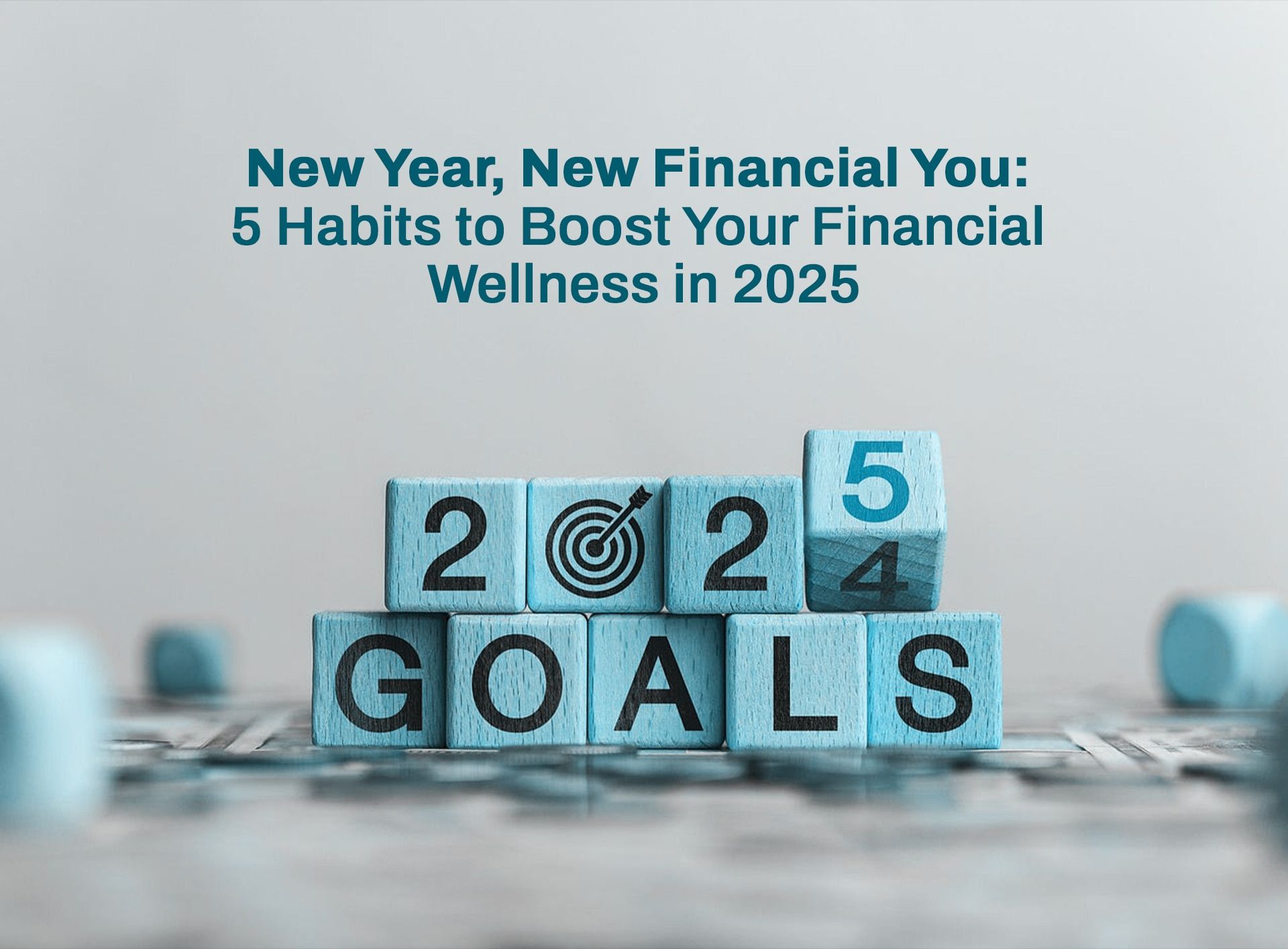As we welcome 2025, it’s a great time to focus on improving your financial health and wellness.
Setting a goal to improve your relationship with money can be life-changing. After all, our financial decisions directly or indirectly impact nearly all aspects of our lives, including our homes, jobs, health, relationships and future.
Let’s review five key habits to help you boost your financial wellness in 2025:
Budgeting
Budgets are more than just organizational tools; they are your financial roadmap. Tracking your monthly income and expenses gives you a clear view of exactly where your money goes—and where it could go instead.
Whether your goal is to save, invest or manage day-to-day expenses, a budget is your starting point.
Budgeting Tools
Many people turn to budgeting after experiencing difficulty managing their finances and regularly finding themselves short on money.
Thankfully, today’s technology offers tools to make budgeting easier. Apps like YNAB (You Need A Budget) and EveryDollar use zero-based budgeting to allocate every dollar of income to a specific purpose.
For a more visual approach, Goodbudget uses a “virtual envelope” system to track spending.
Saving
Saving money is challenging at any income level.
Without savings, you may need to borrow money for unexpected expenses, which can become a difficult cycle to escape.
Start an Emergency Fund
An emergency fund is a financial safety net that can come in handy for large expenses like medical care, home or vehicle repairs or loss of employment. A good rule of thumb is to save three to six months’ worth of expenses in a separate, accessible savings or money market account. This fund offers peace of mind and protects you from the stress of unforeseen financial hurdles.
Investing
Investing allows you to build wealth over time, but it’s important to understand the risks and rewards. Common investment options include stocks, bonds, mutual funds and real estate.
Investment strategy can be influenced by age, income and willingness to assume risk. For example, younger investors funding their future retirement are more likely to consider riskier investments than older investors retiring soon.
The Power of Compound Interest
One of the best advantages of longer-term saving and investing is compound interest—earning interest on your initial investment and on previously earned interest.
This powerful tool accelerates your wealth-building efforts over time, making early and consistent investing a smart habit for long-term goals.
Setting Clear Financial Goals
Defining your financial goals gives you purpose and direction. Goals should be specific, measurable and time-bound.
For example, have your emergency fund established by June and pay off 90% of your credit card debt by the end of December. Breaking down big objectives into monthly or weekly milestones helps you stay motivated and keeps you on track.
Celebrate Small Wins
Each time you hit a milestone, no matter how small, you reinforce positive habits. These small wins develop momentum, turning your financial goals into achievable reality.
Managing Debt
Minimizing debt is key to effectively saving and investing. Prioritize paying down debt after accumulating your emergency fund to set the stage for long-term saving and investing.
Dangers of Credit Card Debt
- Interest: Large credit card balances translate to lots of interest. Throughout 2024, the average variable credit card interest rates remained close to 20%.
- Fees: Credit card issuers impose annual fees, late fees, over-the-limit fees and more.
- Collections/Credit Risks: If you are unable to maintain your monthly debt payments, the original credit card issuer will soon transfer your debt to a collection agency. This delinquency will significantly harm your credit score, making it difficult to buy a home, finance a car, etc.
- Mental Health: Having more debt than you can handle is incredibly stressful and may harm your emotional health, relationships and more.
Boost Your Financial Literacy in 2025
The foundation of long-term financial success is education. Empower yourself to make informed decisions by continually improving your overall financial literacy.
Seek advice from trusted professionals, such as financial advisors, investment specialists or retirement planners, and explore free resources like the Consumer Financial Protection Bureau.
Take the time to read, attend seminars or listen to podcasts focused on personal finance.
With these five habits as your guide, you can make 2025 the year you take control of your financial wellness, one step at a time.
Disclaimer: This article was written to provide guidance and understanding. It is not an exhaustive article and should not be taken as financial advice. Obiex will not be held liable for your investment decisions.




